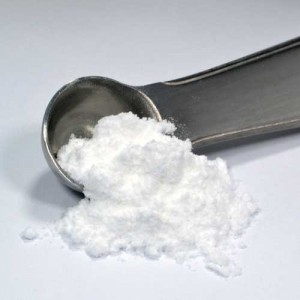by Deepika Chowdhury – Nutrition! I want to repeat that nutrition is the most important factor towards a great looking body. Because we are fitness enthusiasts, we need to know the ins and outs of sports nutrition.
Do you feel helpless when you want to make changes in your diet to lose fat or gain muscle  but don’t know where to start? Do you feel confused reading tons of articles and each saying different things? Do you feel skeptical about starting a celebrity diet plan and spending tons of money on it?! Tired of the myriad of advice given to you by your friends and so-called experts?
but don’t know where to start? Do you feel confused reading tons of articles and each saying different things? Do you feel skeptical about starting a celebrity diet plan and spending tons of money on it?! Tired of the myriad of advice given to you by your friends and so-called experts?
Yep. There’s a ‘guru’ on every corner and on every social media page. Keyboard warriors dominate the internet space. Folks who have about as much experience with scientific research as fish do in climbing trees.
Imagine, if you knew what is the best choice of food items in your diet plan for your set goals? Imagine if you could decide yourself what, how much and when to eat. You could tweak your diet plan if it didn’t give expected results. Imagine you could confidently write your own diet plan and follow it with excitement and curiosity. Think of the happiness when you walk into a supplement shop and knew exactly what you need and should spend on.
Then you don’t just do it for yourself but also become able enough to help and guide others. Because what you know is being implemented on yourself and you can see the results. How to best achieve strength goals and aesthetic goals based on all your sports nutrition knowledge is certainly within your grasp. Won’t that make you feel beyond happy, confident and powerful? If you answered ‘yes,’ then go to the head of the class!
So what am I trying to say? EDUCATE YOURSELF. Train the brain!
I have completed basic courses in the fitness category and read reputable sports nutrition journals. I prefer to read research papers more and more these days. Sports nutrition information changes faster than the blink of an eye. So you need to stay abreast of the latest cool information.
Now I am preparing to be part of THE BEST academic organization in the field of sports nutrition – The International Society of Sports Nutrition (ISSN). This is that one place where all the sports nutrition brains (and bodies I might add) congregate. This includes scientists, practitioners, entrepreneurs and students like me. I can’t wait to attend their conference next year in Clearwater Beach Florida for three days of mind-blowing exchange of knowledge. I am calling myself a student because I am studying for certification through ISSN.
Why did I choose the ISSN? The major reason is that it’s designed by the actual scientists who conduct original research in the field. So it’s like having first class source of knowledge!! They provide access to their website and journal where tons of research papers are available for study. The course is also not time bound. After reading the study material you can choose to take the exam whenever you wish. Now that fits my schedule without stress!
I will be extremely happy if you become my STUDY PARTNER and study with me through ISSN!! That way we can discuss our subject queries. Also it’s more fun to have a study partner. Email me if you wish to join me for the study.
NOTE TO ATHLETES: Nothing of what I have written suggests that you will not require a good coach for your goals. You can attain knowledge from your coach; but remember that the best coaches are ones who know what to do as well why it should be done. In order to know the ‘why,’ you need to know the science. That’s where the ISSN comes in. Nothing and no one can replace a good coach.
So let’s not just train the booty; you have to train your brain as well.
Come join me June 9-11, 2016 at the ISSN Conference in Clearwater Beach FL!
DEEPIKA CHOWDHURY
- India’s first Figure athlete who competed in March 2014 at NPC (National Physique Committee) show Battle on the Beach in Daytona Beach, Florida, USA. She won her first competition in her class and open class both.
- She went for her second competition in Oct 2014 for a show called Fort Lauderdale cup in Florida and won this competition as well in her class and open class both.
- She won her third title in New Jersey on 7 April as Overall Figure Championship at Stevestone Metropolitan Championship 2015.
- She has come back after winning fourth competition at Bev Francis Atlantic States Championship 2015 on 06th of June in New York City, USA.
- She is certified in personal training and sports nutrition.
- She is also a powerlifter and made the highest total in her meet at Mangalore in Bangalore State powerlifting competition as a guest lifter.
- She is BSN (International supplement brand) athlete and also their first athlete from India. She represents Jerai Fitness brand in India as Team Jerai athlete. She is fitness ambassador for Fiber Fitness gym in Pune.
- She was a column writer for magazine called AbraxusNU and has written on fitness mainly targeting female fitness issues. She is a blogger and her fitness blogs can be read at deepikapune.wordpress.com
- She is a fitness model and has been cover girl for Krunch India magazine and has been featured in Vogue India and AbraxusNu.
- She has been featured by newspapers like Indian Express, DNA and Sakal Times. And News channels like India Today.
- She is science post graduate and professionally works at National Institute of Virology; government research institute and handles molecular biology laboratory of her department.




